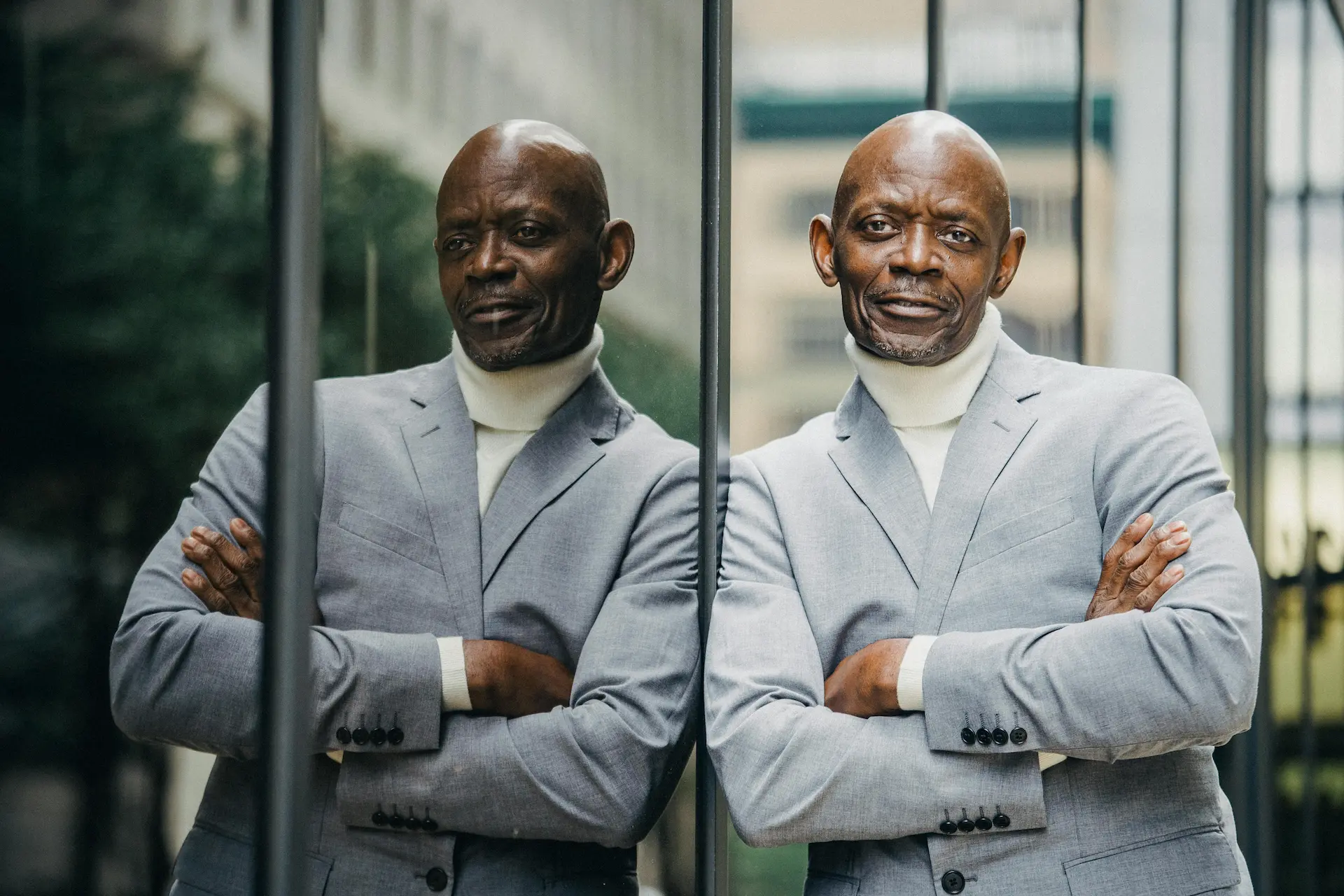The Impact of Executive Coaching on Organizational Culture in Large Corporations

Within large corporations, organizational culture transcends its role as merely a setting for business operations; it is a crucial catalyst for success. As companies evolve and the demands of the global market increase, the need for dynamic, responsive, and effective leadership becomes ever more critical. Here, executive coaching steps into the spotlight as a powerful tool for transformative change.
Executive coaching goes beyond personal development to impact broader organizational dynamics—enhancing communication, fostering leadership skills, and driving positive change across all levels of a company. It equips leaders with the insights and skills necessary to shape a culture that not only embraces change but thrives on it, promoting a continuous cycle of improvement and innovation.
This article explores how executive coaching transforms company culture within large corporations, spotlighting its role in refining leadership capabilities, optimizing communication channels, and embedding a proactive, positive culture that aligns with corporate goals and values.
Understanding Organizational Culture
Organizational culture is the sum of values, behaviors, and beliefs that characterize the way people work together in a business. It influences every aspect of an organization, from decision-making processes to employee engagement and from leadership styles to customer interactions. A robust organizational culture not only enhances employee satisfaction and retention but also drives efficiency and innovation, directly impacting the bottom line.
Significance of Organizational Culture
- Employee Engagement: A positive culture fosters an environment where employees feel valued and invested in their work, leading to higher levels of engagement and productivity.
- Decision Making: Culture shapes how decisions are made within an organization. Cultures that encourage open communication and collaboration tend to be more agile and responsive to market changes.
- Customer Satisfaction: The internal culture of a company often reflects in its customer service quality. A healthy culture can lead to better customer interactions and increased loyalty.
- Innovation: Organizations with cultures that support risk-taking and creativity are more likely to innovate successfully. This is crucial in today’s fast-paced business environments where adaptability can set companies apart from their competitors.
Understanding these aspects of organizational culture is crucial for executives and HR leaders as they strive to create environments that attract, develop, and retain talented individuals while also achieving corporate objectives.
Challenges in Shaping Organizational Culture
Transforming organizational culture in large corporations is a formidable task. The size and complexity of these organizations often mean that cultural change requires navigating a series of intricate challenges:
- Resistance to Change: One of the most significant hurdles is the inherent resistance to change found in established entities. Employees and even managers may cling to old habits and familiar routines, fearing the uncertainties associated with new ways of operating.
- Inconsistent Communication: In large organizations, ensuring consistent communication across all levels and departments can be difficult. Miscommunications and discrepancies in messages can hinder the development of a cohesive culture.
- Siloed Departments: Often, departments within large corporations operate in isolation from one another. This silo effect can prevent the formation of a unified organizational culture and impede cross-departmental collaboration.
- Leadership Alignment: For cultural transformation to be successful, it must be led from the top. If senior leaders are not fully committed or if their actions do not align with the verbal endorsement of cultural change, employees are unlikely to buy into the initiative.
- Scaling Personalized Interactions: In a vast organization, personalizing interactions to keep the culture alive and responsive can be challenging. Without this personal touch, corporate culture can become a set of abstract concepts rather than a lived experience.
Each of these challenges requires specific strategies and commitments from both executives and HR leaders to overcome. Tackling them effectively is crucial for ensuring that the cultural transformation not only takes root but also flourishes.
Role of Executive Coaching in Cultural Transformation
Executive coaching plays a pivotal role in addressing the challenges of cultural transformation within large corporations. By offering tailored guidance and support, coaching helps leaders and teams navigate the complexities of change, enabling a smoother transition to a desired organizational culture.
Key Ways Executive Coaching Facilitates Cultural Change
- Enhancing Leadership Capabilities: Coaching equips leaders with the skills and insights needed to champion cultural change. It empowers them to model behaviors that reflect the company's desired values and to lead by example, setting a precedent for the entire organization.
- Improving Communication: Executive coaches work with leaders to hone their communication skills, ensuring that they can clearly articulate the vision and the values of the new culture. Effective communication is crucial for minimizing misunderstandings and for building trust and buy-in among all staff levels.
- Breaking Down Silos: Coaches help leaders identify and address structural barriers that contribute to siloed operations. Through coaching, leaders learn strategies for fostering collaboration across different departments, enhancing the integration of diverse teams into a unified culture.
- Aligning Leadership Teams: Coaches ensure that all executives and managers are aligned in their understanding and commitment to the cultural change. This alignment is crucial for maintaining a consistent approach to change management across the organization.
- Facilitating Personal Growth: Executive coaching also focuses on personal growth by helping leaders to understand their own behaviors and how these influence their teams. Coaches assist leaders in developing empathy, resilience, and the ability to inspire and motivate others, all of which are essential qualities for leading a cultural transformation.
By addressing these critical areas, executive coaching not only supports the immediate needs of cultural change but also builds a foundation for sustained improvement and engagement within the organization.
Impact of Executive Coaching on Communication
Effective communication is the backbone of any successful cultural transformation. Executive coaching significantly enhances this aspect by providing leaders with the tools and skills necessary to foster open, honest, and effective communication throughout the organization.
Improving Communication Strategies
- Clarity and Consistency: Coaches work with leaders to refine their messaging, ensuring clarity and consistency in what is communicated across all levels of the organization. This helps in mitigating confusion and aligns all employees with the new cultural direction.
- Active Listening Skills: Executive coaching emphasizes the importance of active listening as a leadership skill. By becoming better listeners, leaders can more effectively address concerns and feedback from employees, which contributes to a more inclusive and respectful workplace culture.
- Feedback Mechanisms: Coaches help leaders develop and implement effective feedback mechanisms that encourage constructive conversations. This not only improves individual performance but also drives collective progress towards the cultural goals.
- Conflict Resolution: Coaching provides leaders with strategies for managing and resolving conflicts in a way that maintains positive relationships and fosters a collaborative environment. This is particularly important during times of change when tensions and disagreements may surface.
Building Trust and Engagement:
- Transparency: Coaches encourage leaders to practice transparency in their decision-making processes, which builds trust among team members and makes the cultural transition smoother and more accepted.
- Emotional Intelligence: Enhancing leaders' emotional intelligence is a critical component of executive coaching. Higher emotional intelligence allows leaders to communicate more effectively under stress, relate to their teams' emotions, and handle sensitive issues with empathy.
Through these improved communication strategies, executive coaching helps create an environment where ideas are shared freely, challenges are addressed openly, and everyone feels valued and heard. This not only strengthens the culture but also bolsters the organization’s resilience and adaptability.
Driving Change with Executive Coaching
Executive coaching is not just about enhancing individual leader capabilities; it's a strategic tool for instigating and sustaining organizational change. Through targeted coaching, leaders learn to become agents of change, equipped with the necessary skills to manage transitions effectively and embed new cultural norms throughout the corporation.
Facilitating Effective Change Management
- Strategic Vision Alignment: Executive coaching helps leaders align their personal leadership styles and decisions with the strategic vision of the organization. This alignment is crucial for effectively driving change that sticks and for ensuring that all actions support the overarching goals of the company.
- Adaptability Skills: Coaches work with leaders to develop their adaptability, teaching them how to embrace and lead change rather than resist it. This includes training on how to anticipate challenges, react constructively to unexpected changes, and seize opportunities for improvement.
- Empowering Others: Effective change leaders empower their teams to take ownership of new initiatives and cultural shifts. Coaching enhances leaders' ability to delegate, motivate, and inspire trust and innovation among their team members, fostering a proactive change environment.
- Sustaining Change: Executive coaching also focuses on strategies for sustaining change over the long term. This involves embedding new behaviors and mindsets into the corporate culture, ensuring that changes become integral to the organization’s identity and operations.
By addressing these areas, executive coaching ensures that change is not only implemented but also embraced and sustained, transforming challenges into opportunities for growth and development.
Case Study: Coca-Cola International's Transformation Through Executive Coaching
Coca-Cola International (CCI) serves as a prime example of how executive coaching can significantly transform organizational culture in large corporations. With a vision to be the best FMCG in their operational geographies, CCI recognized that their people are central to realizing this goal. Emphasizing the development of key capabilities, CCI turned to CoachHub to enhance their strategic execution through executive coaching.
Strategic Implementation and People Development:
- CCI focused on building the right capabilities among their employees, aligning with their core values of innovation, resilience, and empathy. This alignment was crucial as it directly influenced their strategies to enhance customer-centric operations and internal dynamics.
Standardized Coaching Approach:
- Utilizing CoachHub, CCI provided a standardized platform for executive coaching across different geographies, ensuring that all employees experienced consistent training and development. This approach not only democratized access to resources but also maintained a uniform quality of leadership development.
Transformational Impact on Leaders:
- The coaching program significantly changed the perspective of leaders at CCI. Initially skeptical about the effectiveness of coaching, they experienced personal transformations, enhancing their leadership skills. For example, one leader learned the importance of asking questions rather than offering direct advice, fostering a more inclusive and empowering approach to leadership.
Enhanced Communication and Conflict Management:
- Through coaching, leaders improved their communication strategies and conflict management, vital for sustaining a positive workplace culture. They became adept at giving constructive feedback and managing diverse team dynamics, crucial skills for driving change and fostering collaboration.
Recommendations and Organizational Benefits:
- The positive outcomes from the coaching program led to widespread recommendations across CCI. Leaders who underwent coaching appreciated its timeliness, especially during the challenging pandemic period, and acknowledged its role in providing a competitive edge.
The benefits of the coaching extended beyond individual growth, contributing to increased employee engagement, retention, and overall job satisfaction across the corporation.
Conclusion:
- Coca-Cola International’s case underscores the profound impact that executive coaching can have on a large corporation's culture. By embracing coaching, CCI has not only enhanced its leadership capabilities but has also fostered an organizational culture that is robust, adaptive, and aligned with its strategic vision.
Benefits of a Transformed Culture
The transformative impact of executive coaching on organizational culture brings numerous benefits to large corporations. By cultivating a culture that aligns with corporate values and strategic goals, companies can experience improvements that resonate across all levels of the organization.
Key Benefits Include:
- Enhanced Employee Engagement: A culture shaped by effective leadership and clear communication fosters greater employee engagement. Engaged employees are more productive, more satisfied with their jobs, and more inclined to stay with the company, reducing turnover and the associated costs.
- Improved Efficiency and Innovation: When leaders are coached to encourage creativity and initiative, organizations see a rise in innovation. This environment allows employees to propose and implement solutions that drive the business forward, ultimately enhancing competitiveness and market responsiveness.
- Stronger Leadership: Executive coaching develops leaders who are not only skilled in managing their teams but also in inspiring them. These leaders contribute to a culture where continuous improvement is the norm, and challenges are viewed as opportunities to learn and grow.
- Better Decision Making: With a culture that supports open communication and values diverse perspectives, decision-making improves as more comprehensive insights are considered. This leads to more effective strategies and actions that are in line with the organization's long-term goals.
- Increased Adaptability: In today’s fast-paced market environment, adaptability is crucial. A transformed culture, underpinned by the principles and practices instilled through executive coaching, enables companies to quickly adjust to market changes and internal dynamics without losing momentum.
- Positive External Perception: A healthy organizational culture not only benefits those within the company but also enhances its reputation in the industry. This can lead to better customer relationships, more partnerships, and an easier time attracting top talent.
By investing in executive coaching, organizations not only enhance their internal culture but also strengthen their position in the marketplace, making them more robust and agile in facing future challenges.
Conclusion
The profound impact of executive coaching on organizational culture cannot be overstated. As demonstrated through strategic implementation at companies like Coca-Cola International, executive coaching offers more than just personal leadership development—it transforms entire corporate cultures. By fostering a culture that values open communication, continuous learning, and adaptability, executive coaching prepares organizations to not only meet the challenges of today but to excel in the face of tomorrow's uncertainties.
For large corporations, where shifting culture can seem like steering a giant ship, the targeted, personalized guidance provided by executive coaching proves invaluable. It aligns leaders with organizational goals, enhances their ability to manage and inspire their teams, and embeds a proactive approach to both challenges and opportunities.
Is your organization ready to redefine its culture and harness the power of its people? Investing in executive coaching is not just an option—it's a strategic necessity in today’s complex business environment. Take the step towards transforming your organization’s culture; the benefits of this change will resonate far beyond the walls of your company, influencing every aspect of your operations and market presence.
FAQ
At CoachHub, we believe in the power of aligning individual growth with organizational objectives. Our dedicated coaches work closely with coachees to ensure that their growth plans are directly linked to your company's overarching goals. This includes addressing specific leadership development needs within different departments or teams, and recognizing that each area may have unique challenges and requirements.
To achieve this alignment, we collaborate closely with our clients and their senior leaders, taking the time to understand their organization's specific challenges, objectives, and organizational culture well. By gaining deep insights into your company's dynamics, we can tailor coaching plans that address the specific needs of different teams and individuals.
Our approach is highly customized and adaptable. We recognize that each coachee has unique requirements, and we leverage our expertise to develop coaching plans that are relevant and effective for all participants, regardless of their role or level within the organization. Whether it's helping to develop leaders, retain talent, improve leadership skills of middle management, or support C-suite executives, our coaching programs are designed to cater to diverse needs and ensure maximum impact.
By aligning growth plans with your company's objectives, we create a cohesive approach that enhances overall organizational success. Our coaches help coachees identify areas for improvement, set meaningful goals, and develop actionable strategies to bridge the gap between their current competencies and the desired leadership abilities. This alignment not only facilitates personal and professional growth but also contributes to the long-term success of your organization.
With CoachHub, you can be confident that our coaching programs are tailored to address the specific leadership development efforts within your organization. By collaborating closely with our clients, we ensure that our coaching plans are relevant, effective, and aligned with your company's objectives, driving growth and excellence across all departments and levels.
At CoachHub, we understand the importance of scalability when it comes to your leadership development program. That's why our programs are thoughtfully designed to accommodate a large number of participants simultaneously, ensuring that organizations of all sizes can benefit from our services. Whether you have a small team or a global workforce, our coaching platform is equipped to handle the scale.
With our advanced digital coaching platform, we bring high-quality coaching directly to employees all over the world. The beauty of our online sessions is that participants can access them from anywhere, at any time. This flexibility empowers employees to engage in coaching without geographical constraints or time zone limitations. Whether they're working from home, traveling for business, or stationed in a different country, our platform ensures that they can easily connect with their coach and participate in sessions at their convenience.
The digital nature of our coaching platform also means that participants can enjoy a consistent and seamless coaching experience, regardless of their location. Through video calls, instant messaging, and other interactive tools, our platform fosters a sense of connection and engagement between the coaches and participants. This virtual environment not only saves time and resources but also allows for regular and ongoing coaching support without the need for in-person meetings.
By leveraging the power of technology, our scalable coaching programs break down barriers and provide accessible coaching solutions to organizations and individuals around the globe. Whether it's a small team or a multinational corporation, our platform ensures that every participant can benefit from high-quality coaching, anytime and anywhere.
Absolutely! CoachHub's leadership development program is designed to seamlessly integrate with your existing talent development and performance management initiatives. We understand that every company has its own unique needs and goals, and that's why our coaching sessions are completely tailored to meet those requirements. Whether you're looking to strengthen leadership skills, foster personal growth, or achieve organizational success, our program aligns perfectly with your company's specific objectives.
By customizing our coaching sessions, we ensure that each individual receives the guidance and support they need to thrive. We take the time to understand their strengths, challenges, and aspirations, and then craft a coaching experience that caters to their personal growth journey. This way, we can provide targeted development opportunities that directly contribute to their success within your organization.
When you integrate our program with your leadership development efforts and performance management initiatives, you create a powerful synergy. Our tailored approach complements and reinforces your existing efforts, allowing you to build a comprehensive framework for maximizing the potential of your workforce. Together, we can create an environment where employees are motivated, empowered, and equipped with the skills they need to excel.
So, rest assured that with CoachHub's leadership development program, you can easily integrate coaching into your existing initiatives and achieve remarkable results that align with your company's requirements.




.svg)


.svg)




.png)



